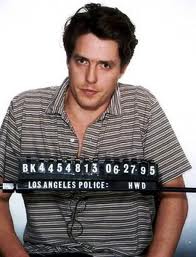I’m fascinated at how Hugh Grant is reinventing himself as a statesmanlike spokesman for those abused by the tabloids. He is doing a brilliant job, and comes over as intelligent, thoughtful and sincere.
He is also an actor.
An actor who has good reason not to want the press on his back – unless, of course, he has a film to sell.
It’s the old Mephistopholean dilemma. In the play, Dr Faustus, the doctor sells his soul to the devil (Mephistopheles) in return for fame and fortune. Of course, when the time comes, he’s enjoyed the riches and rewards very much indeed, thank you, but is not so keen on keeping the giving-his-immortal-soul-to-the-devil side of the bargain.
I wouldn’t suggest that Hugh Grant is trying the same trick – using the papers to publicise himself when it suits him, then turning coy when he has a sudden love-child, or an unfortunate encounter with a prostitute, to hush up – but he is not an entirely innocent victim of phone hacking in the way that Milly Dowler and her family were.
The public, unfortunately, has a huge thirst to know what drives people like Hugh Grant, particularly when he often plays fairly conventional romantic leads (Four Weddings, Emma) and has such an unconventional, uncommitted time in real life. It’s not his fault that we long to know what makes him tick, and I suppose not ours either. But it is the force which drove the News of the World, and apparently other papers too, to overstep the bounds of normal human decency. We need some sort of press regulation that everyone will stick to, which still allows our papers to investigate as they should when they find something that really is in the public interest. It’s a tricky balancing act. I hope this enquiry will get it right.


